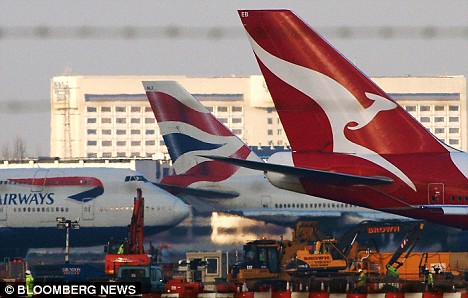Car noise increases your risk of heart attack by 38%
By Roger Dobson
Last updated at 9:38 PM on 12th January 2009Long-term exposure to even relatively low levels of noise, such as traffic outside the house, may increase the risk of cardiovascular disease, heart attack and high blood pressure.
While it has long been known that exposure to loud noise can cause hearing loss, it had been thought that relatively low levels of environmental noise were not a danger.
But research is increasingly showing that such noise can have adverse effects.
Swedish researchers, who reported their findings in the journal Epidemiology last week, have found that low-level long-term road traffic noise is associated with an 38 per cent increased risk of a heart attack.

Even traffic noise outside your house can increase your risk of a heart attack
In another study, by the Federal Environmental Agency in Berlin, men exposed to traffic noise levels of more than 70 decibels during the day were 30 per cent more likely to suffer a heart attack than those whose noise exposure did not exceed 60 decibels.
It is not only noise from road traffic that has effects on health.
An on-going European study involving Imperial College, London, has shown that people living near a major airport and exposed to nighttime aircraft noise have a 14 per cent rise in the risk of high blood pressure.
Theories as to why noise has such an effect on the heart include the idea that noise during sleep has an effect on the parasympathetic nervous system - a part of the nervous system that slows the heart rate and relaxes muscles, resulting in a drop in blood pressure, all of which can be beneficial for the heart.

Researchers will also study noise levels around Heathrow Airport and its impact on people's health
Researchers from the Netherlands Organisation for Applied Scientific Research, have found that the parasympathetic nervous system was less active in people exposed to traffic noise as they slept, and therefore less protective of the heart.
Another theory is that the effects may be caused by hormones as a result of noise-induced stress. 'I think we have enough evidence to show a link,' says Dr Anna Hansell, a public health specialist, and clinical fellow and senior lecturer at Imperial College.
'We have two studies under way. One is looking at whether the increased risk of heart disease that has previously been linked to pollution from traffic may, in fact, be due, at least in part, to noise.
'A second study is looking at hospital admissions and noise levels around Heathrow.'
Source: http://www.dailymail.co.uk/health/article-1113563/Car-noise-increases-risk-heart-attack-38.html
